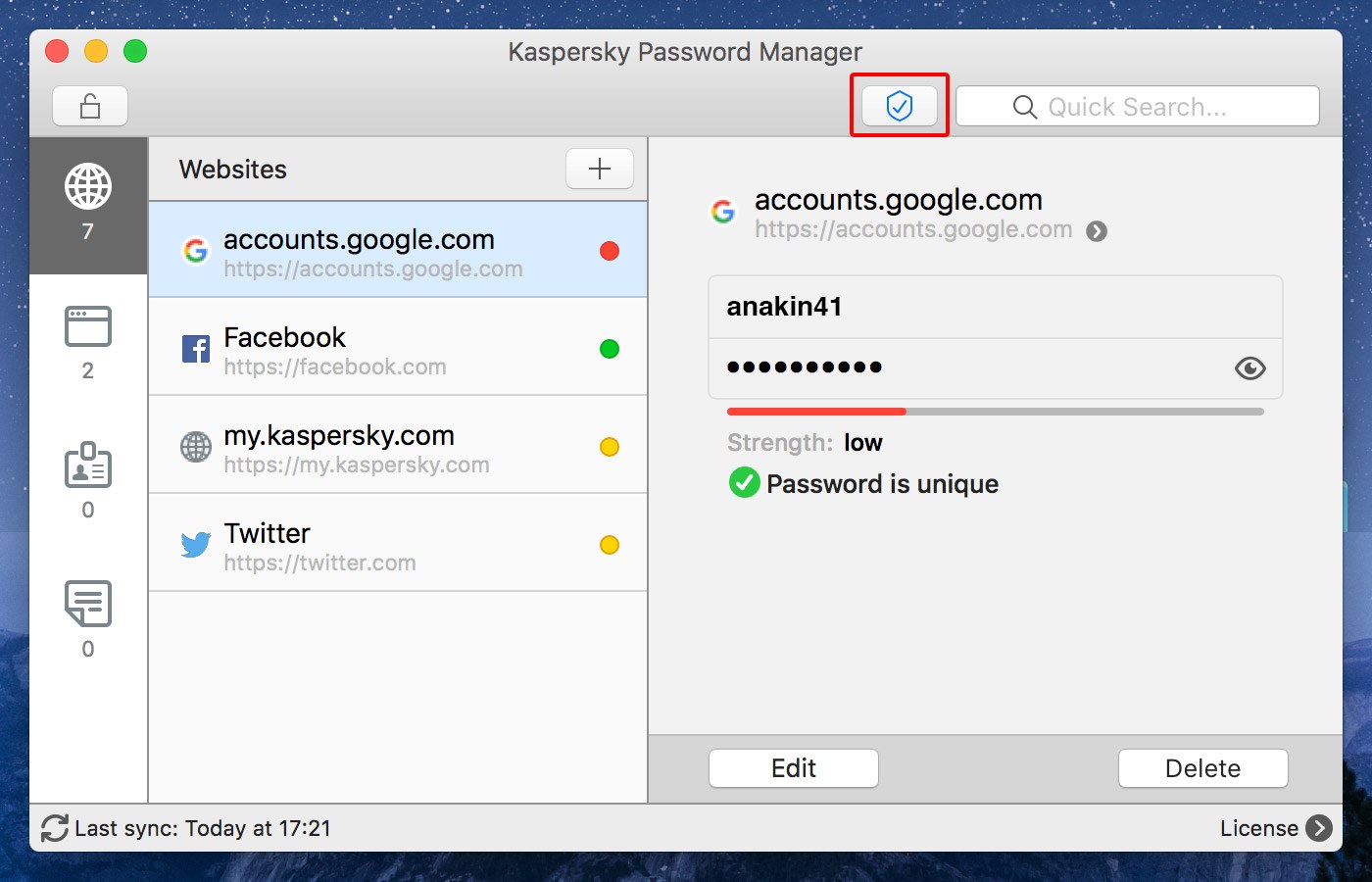
- #Kaspersky password manager generated easily bruteforced generator
- #Kaspersky password manager generated easily bruteforced update
- #Kaspersky password manager generated easily bruteforced Patch
The issue was assigned CVE-2020-27020 and Kaspersky published an advisory in April, 2021.
#Kaspersky password manager generated easily bruteforced Patch
And in October 2020, Kaspersky released KPM 9.0.2 Patch M, which included a notification to users that certain weak passwords need to be regenerated. Kaspersky Password Manager, you might want to regenerate any password created. With WPA3, Wi-Fi will be secure this time, really, wireless bods promiseĪ series of fixes – because the initial Windows patch didn't work properly – were rolled out to the web, Windows, Android, and iOS between October and December 2019. Kaspersky Password Manager caught out making easily bruteforced passwords.Pull your Western Digital My Book Live NAS off the internet now if you value your files.Dear Planet Earth: Patch Webmin now – zero-day exploit emerges for potential hijack hole in server control panel.Titan-ic disaster: Bluetooth blunder sinks Google's 2FA keys, free replacements offered."For example, there are 315619200 seconds between 20, so KPM could generate at most 315619200 passwords for a given charset. "The consequences are obviously bad: every password could be bruteforced," the Donjon team wrote. And if the creation time of an account is known – something commonly displayed in online forums, according to Donjon – that range of possibilities becomes much smaller and reduces the time required for bruteforce attacks to a matter of seconds. Nonetheless, the lack of randomness meant that for any given password character set, the possible passwords created over time are limited enough they can be brute-forced in a few minutes. Article Link: Kaspersky Password Manager. All the passwords it created could be bruteforced in seconds." If you are using Kaspersky Password Manager, you might want to regenerate any password created before October 2019. Its single source of entropy was the current time. Developed by Russian security firm Kaspersky, the Kaspersky Password Manager (KPM) allows users not only to securely store passwords and documents, but also to generate passwords when needed. "The most critical one is that it used a PRNG not suited for cryptographic purposes. A vulnerability in the Kaspersky Password Manager resulted in the created passwords being weak enough to allow an attacker to brute-force them in seconds, a security researcher claims.
#Kaspersky password manager generated easily bruteforced generator
"The password generator included in Kaspersky Password Manager had several problems," the Donjon research team explained in a blog post on Tuesday. In the sense that I’ve never seen so many broken things in one simple piece of code. I was going to laugh off this Kaspersky password manager bug, but it is *amazing*.


Three months later, a team from security consultancy Donjon found that KPM didn't manage either task particularly well – the software used a pseudo-random number generator (PRNG) that was insufficiently random to create strong passwords.įrom that time until the last few months of 2020, KPM was suggesting passwords that could be easily cracked, without flagging the weak passwords for users.
#Kaspersky password manager generated easily bruteforced update
In March 2019, security biz Kaspersky Lab shipped an update to KPM, promising that the application could identify weak passwords and generate strong replacements. Last year, Kaspersky Password Manager (KPM) users got an alert telling them to update their weaker passwords.


 0 kommentar(er)
0 kommentar(er)
